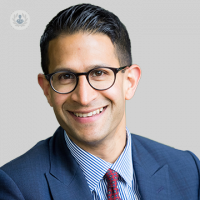Cervical dystonia: what is it, how is it diagnosed and how is it treated?
Autore:Cervical dystonia is a painful condition that is caused by a combination of factors. In his latest article, renowned London-based neurologist explains this condition in a clear, informative manner. He explains the causes, diagnosis and treatment of cervical dystonia, as well as the effectiveness of these treatments.

What is cervical dystonia?
Cervical dystonia is a condition that causes an abnormal posture or position of the neck and head. Often there is a twisting or turning of the head and it can be related to pain or discomfort in the neck. Some patients also have shaking or tremor in the head.
What can cause cervical dystonia?
Most forms of cervical dystonia are caused by a combination of multiple genetic and environmental factors. There is not usually a single identifiable cause. However, aggravating factors or triggers are often notable by patients. Rarely, a single gene disorder can be a cause. These causes lead to subtle changes in the brain in the way it sends control signals to muscles.
How is cervical dystonia diagnosed?
Cervical dystonia does not cause detectable changes on scans or other tests. It is diagnosed by a neurologist according to typical features in the patient's story and from bedside examination of the patient's head and neck movements. Sometimes, a scan and blood tests may be needed to rule out alternative causes.
What treatments are available for cervical dystonia?
Cervical dystonia does not always need treatment. If, however, if it is affecting quality of life, it is worth treating. Options can include botulinum toxin injections, which are very effective, medications or less commonly alternative options such as a pacemaker to the brain (deep brain stimulation).

Are these treatments successful on a long-term basis?
Most treatments are effective for the duration of treatment. Injections are very helpful but need repeating to have an enduring effect. Medications can help for the duration that they are taken. Options such as deep brain stimulation can have enduring benefits.
Dr Tabish Saifee is a leading neurologist with over 20 years of experience. With over 20 years of experience, Dr Saifee is highly experienced in a wide range of neurological conditions and treatments. If you would like to book a consultation with Dr Saifee, you can do so today via his Top Doctors profile.


